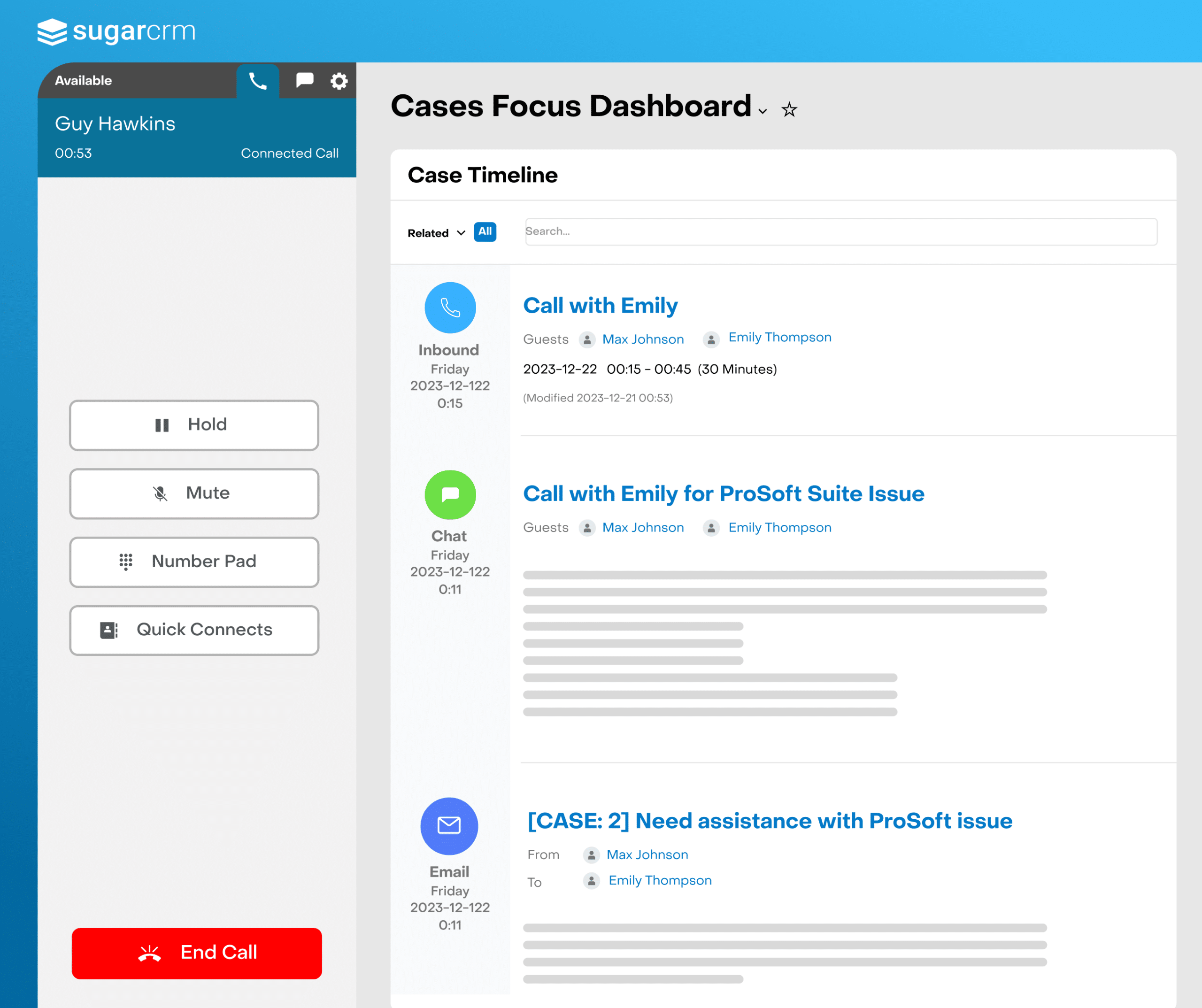Mid-Market Companies – Big Enough to Matter But Small Enough to Care
Since starting Sugar back in 2004, I’ve always enjoyed working with mid-market companies the most. There is certainly the allure of working with the enterprise big boys with their Sumo-class throw weight. And startups have an excellent “can-do” entrepreneurial attitude that makes me reminisce about the early days of Sugar. But the real customer experience (CX) fun, in my opinion, is with mid-market companies.
What is a mid-market company? At the core, it’s a company that is big enough to matter but small enough to care. These are companies that are ready to invest in growth strategies to focus beyond the quick wins. Mid-market companies understand that winning is about mixing a killer product or service with an effortless, high-definition customer experience. For a CX nerd like me, there is no more fun than helping a decent-sized company light up the leads, accelerate the sales and turn their customers into #RavingFans.
Let’s describe the mid-market a bit further. First, let’s outline what the financial experts say about the mid-market.
What Is the Middle Market?
The middle market is the segment of American businesses with annual revenues roughly in the range of $10 million to $1 billion, although some definitions set a higher top on the range. There are about 200,000 such firms, most of them privately owned or closely held, and their annual revenues combined total more than $10 trillion.

Middle Market Company
The National Center for the Middle Market at the Ohio State University Fisher College of Business and Dun & Bradstreet’s proprietary database of commercially active U.S. firms defines middle-market businesses as those companies with revenues between $10 million and $1 billion per year.
The average U.K. middle-market firm has revenue of £78 million (€98 million). It employs 500 people, similar to its German counterparts but larger than the typical mid-market firm in France or Italy.
What is the Middle Market?
Traditionally, analysts have grouped businesses into three simple categories: small businesses, middle-market businesses, and big businesses. However, definitions have become increasingly complicated. Beneath the middle market category, lower middle-market companies fall on the lower end of the revenue scale, generally from $5 million to $50 million, and upper middle-market businesses fall at the higher end of the scale, usually between $500 million to $1 billion.
SugarCRM’s Definition
Here at Sugar, we define the mid-market by the number of employees for our segmentation purposes. We employ two categories for the mid-market. The Lower Mid-Market are companies with 100 to 500 employees. The Upper Mid-Market are companies with 500 to 2,500 employees. We use this segmentation for demand gen, sales attribution, and customer segmentation purposes. To round out the picture, SMB are companies with less than 100 employees, and Enterprise are companies with more than 2,500 employees.
More Than Just a Number
However, I believe that a mid-market company is so much more than just a number. It’s an attitude. It’s a mindset. It’s an aspiration. “We are no longer small, but we aren’t (yet) enormous.” There is certainly an aspect of the awkward teenager with endless potential and unrealized ambition. But that’s the “glass half empty” perspective. I think mid-market companies are a growth powerhouse that lives up to so much more.

Going back to what I wrote above, I believe a mid-market company has the resources to invest: in a killer product experience, an inspirational brand experience, a loyal employee experience, and a high-definition customer experience. These are the companies that believe in customer success and have the focus to make it happen.
Again, “big enough to matter but small enough to care.” Every mid-market company is quickly compared to their enterprise competitors. The smart ones will leverage their size with jujitsu finesse to show their prospects and customers that smaller means they have to care more. With enterprise companies, a customer is just another number. For a mid-market company, every customer has to be successful for that company to win and grow.
I think a true mid-market company is less about the number of employees or last year’s turnover numbers. It’s more about that attitude and mindset. I’m happy to call any company on the smaller end of the spectrum a “mid-market company” when they are focused on beating the big boys, driving growth, and embracing their customers.
I love working with mid-market companies!
This article was originally published on the SugarClub Leadership Lounge, where Sugar’s leadership team discusses what’s on their minds and welcomes the SugarClub community to ask any questions or share insights about customer experience, CRM, technology, building companies, or anything else!


